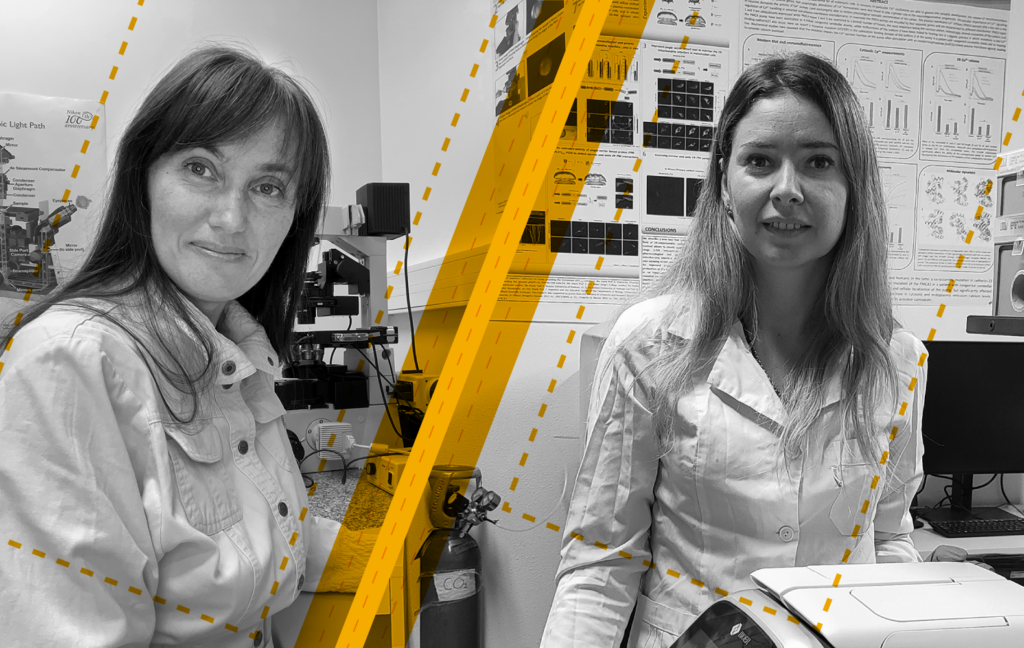1 December 2023 – “I want to return to Ukraine to work. But at the moment, it is not possible to perform experiments there,” explains Tetiana Tykhonenko, postdoctoral researcher at the University of Padua, Italy. When Russia invaded Ukraine, she was working as a researcher at the Palladin Institute of Biochemistry in Kyiv. In October 2022, she was able to move to Italy. This year, she is receiving an EMBO Solidarity Grant, as are 26 other life scientists affected by the Russian war on Ukraine. “Receiving this grant is a good experience for me. I can continue my scientific career despite the challenges and interruption of war,” she says. Tykhonenko is investigating organelle contact sites dynamics in physiology and in neurodegeneration.
In 2022, EMBO initiated the solidarity grant scheme as an exceptional funding mechanism with the aim of supporting scientists displaced by armed conflict. In early 2023, 53 life scientists, one from Yemen and 52 from Ukraine, applied for a solidarity grant, and 33 applicants were selected. Ultimately, 27 researchers, all of whom are Ukrainian, accepted the offer of financial support for one year while conducting a life science research project in an EMBO subject area. Grantees also receive childcare allowances and can participate in training courses offered by EMBO Solutions.
Each grantee is hosted by a laboratory in a different institute, in countries participating in the initiative to increase participation across Europe. The grants are funded by EMBC, the intergovernmental organization comprising 30 members states that funds the major EMBO Programmes and activities. Eleven grantees will be working in the Czech Republic, eight in Poland, three in Lithuania, two in Italy, and one in Hungary as well as in Türkiye. Most grantees are using the grant to begin or continue research at the postdoctoral level; one is conducting research at the group leader level and seven are undertaking a PhD project.
One grantee pursuing a PhD, Olena Yakushko, is researching the effects of neurodegenerative diseases on the cerebellum and retina in her doctoral work in histology and embryology. Previously, Yakushko established herself as a researcher at Poltava State Medical University, where she performed in-depth studies of diseases of the retina and optic nerve. Now living in Pilsen, Czech Republic, Yakushko says: “Thanks to Charles University I have the opportunity to continue my work.” Regarding the EMBO Solidarity Grant, she says: “The grant is supporting me, my research and at the same time also my family—I have a small daughter. It opens a new way of development for me. For example, now I can attend an EMBO Laboratory Leadership Course for free, as well as an additional EMBO course or conference, which will help me grow as a researcher. This grant opened a new chance for self-realization.”



